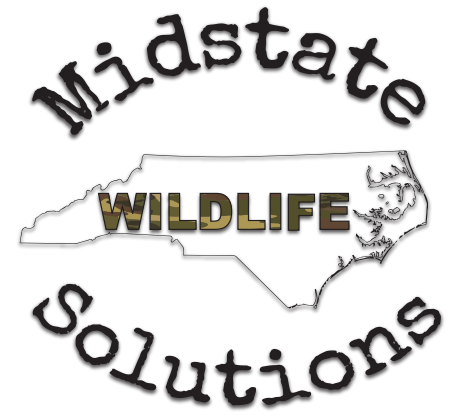Groundhogs are native to the state of North Carolina, and they are the largest member of the squirrel family. They usually weigh between 5 to 12 pounds, and they can be up to 2 feet long. Groundhogs tend to inhabit pastures, fields and open woods. The main thing they look for are areas where their burrows will not be flooded. They hibernate in the winter from November to February, and become active in the spring and summer.
Groundhogs can be very troublesome for farmers and landowners. Being herbivores, groundhogs often feed on wild plants and crops. They love to eat vegetables, and they will leave the soil weak wherever they burrow. Horses and livestock may be injured by stepping into a groundhog burrow. Farm machines may also get damaged by running over a mound or falling into a burrow.
Groundhogs can also cause issues for homeowners. When a groundhog burrows next to a house, this can reveal the foundation, allowing water to seep in which can cause a lot of damage to the home. Groundhogs may also dig under the foundation of homes and buildings, which can lead to a potential collapse. These creatures may also chew on electrical cables that run underground. Due to the risk of foundational damage, you should get in touch with a wildlife control expert if you notice any groundhogs burrowing around your home.
If you are concerned about groundhogs on your property, get in touch with us! We offer humane and ethical wildlife control solutions, and we offer wildlife exclusion services to keep wildlife from coming back. Visit our Home page to learn more about our services and to get a quote!






